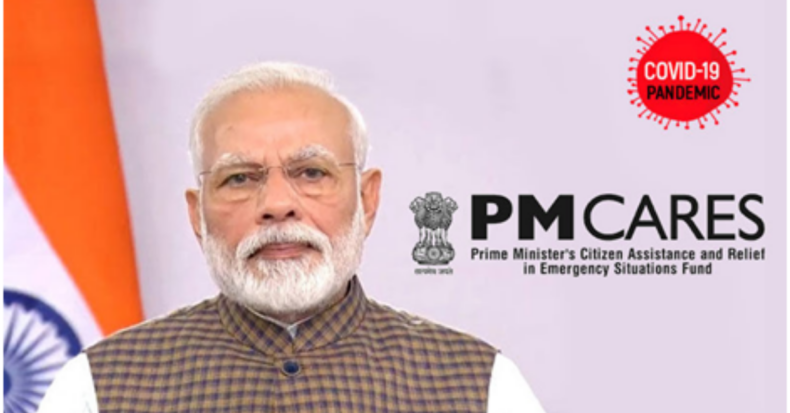While the PM CARES appears as a state fund for people in need, the Union Government maintains that it is not.
On Wednesday, such notions got debunked as Delhi High Court is now deciding the Fund’s nature.
PM CARES (Prime Minister Assistance and Relief in Emergency Situations Fund) is often and generally regarded as a public fund maintained by the Government of India.
However, the Union government preserves its private status. The Prime Minister’s Office (PMO) even refused to release pertinent information to the public domain under the Right to Information Act, 2005, regarding the funding is constitutional.
To prove that the budget is established and actively promoted by the Government of India, Samayak Gangwal pleads to the Delhi High court to officially declare it as ‘State’ funding under Article 12 of the Constitution.
Is Centre pretentious?
Samyak Gangwal’s petition demanding to know the nature of the PM CARES Fund and effectively declare it as ‘The State’ under Article 12 of the Constitution made the Center claim that the Fund was set up as a charitable trust.
It also mentioned that disclosure of information regarding the Fund is not possible without third party permission.
However, Gangwal’s petition highlights common bafflement that despite the trust being set up by the Prime Minister and has him and other Union Ministers as trustees, how come the Government has no control over it.
To clarify the dismay, senior advocate Shyam Divan, appearing for the petitioner, refers to several instances where the Fund has been referred to as a “national fund”, “set up by the government” by the vice-president, ministers of defence and top bureaucrats.
To negate this, an under-secretary at the PMO submitted that no matter what the status of the Fund is, information regarding it cannot be disclosed entirely without permission from the third party.
Center’s sponsorship
The Union government’s evasive behaviour regarding the status of the Fund has been questioned, like the Fund, set up on March 28, 2020, to assist the Covid-19 pandemic got promoted by the Government of India and has attracted massive amounts of donations.
The Government maintains that the Fund is transparent and is examined by a chartered accountant from the panel constituted by the Controller and Auditor General of India (CAG).
But last year, the Supreme Court observed no such examinations of the PM CARES Fund as it is a public charitable trust.
Furthermore, in the copy of its deed released in December 2020, it is stated that the Fund was not created under the Constitution.
With rumours about the spending of funds through PM CARES, an elusive government repeatedly insists that the Fund does not come under RTI Act.
Tax relief and CSR convenience
The Government has provided several unique treatments to the Fund, and one such benefit is the exemption from amended FCRA (Foreign Contribution Regulation Act) purview.
The rigorous examination course to maintain transparency does not apply to PM CARES despite getting plenty of foreign funds.
Apart from this, PM CARES Fund also enjoys 100% tax relaxation on donations. Similarly, the ministry of corporate affairs issued that any contributions made to the Fund by a company shall qualify as Corporate Social Responsibility.
This result in public sector undertakings to make considerable donations to the PM CARES Fund.
PM CARES using Government’s name for gain
To numerous RTI applications doubting the expenditure of the fund money, the authorities submitted that the funds were used to purchase vaccines, oxygen, and ventilators during the pandemic.
However, according to some sources, the money for ventilators was first spent from public funds and later compensated by the PM CARES Fund.
Moreover, using a government-specified domain name, sending messages to people stating the fund “belongs to your government” and that it will be subject to discipline under the Indian Constitution establishes its public nature.
Divan argued that a high government functionary could not produce a structure on his will outside the Constitution’s reach. The next hearing will take place in October.












